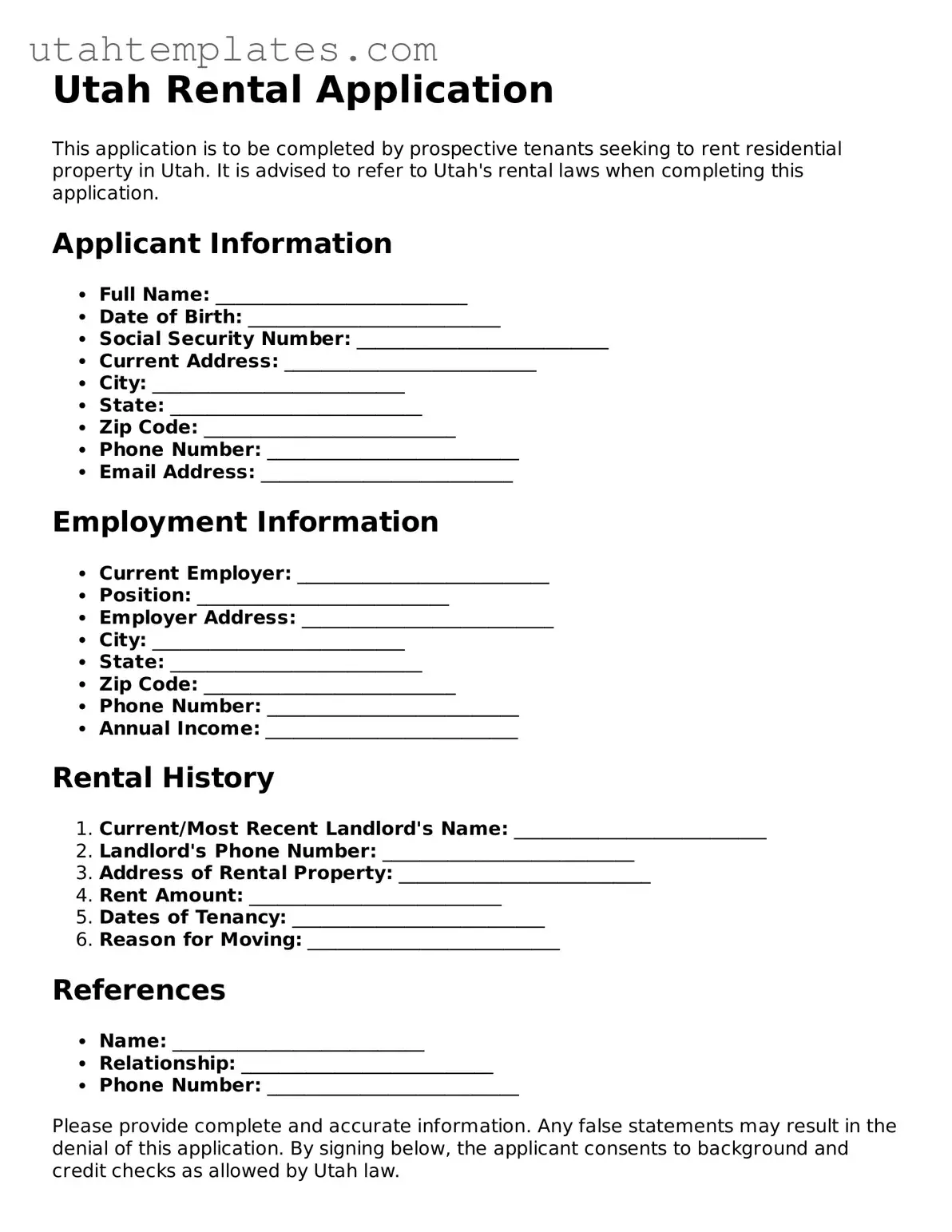Completing a rental application in Utah can seem straightforward, but many applicants make common mistakes that can hinder their chances of securing a lease. One frequent error is providing incomplete information. Many applicants overlook sections that require details about their employment or income. Omitting this information can raise red flags for landlords, who need a full picture of an applicant's financial stability.
Another mistake is failing to double-check for accuracy. Typos or incorrect figures can lead to misunderstandings or even disqualification. It is essential to ensure that all names, addresses, and contact information are correct. A simple mistake in a phone number can prevent a landlord from reaching out for follow-up questions or scheduling a viewing.
Many applicants also neglect to disclose past rental history fully. Some may think that minor issues, such as a previous eviction, do not need to be mentioned. However, transparency is crucial. Landlords appreciate honesty and are more likely to consider an applicant who openly discusses past challenges rather than one who tries to hide them.
Another common oversight is not providing references. Many applications ask for personal or professional references who can vouch for an applicant's character and reliability. Failing to include these references can make an application appear weak, as landlords often seek reassurance from third parties about an applicant's trustworthiness.
Some applicants forget to sign the application or provide the necessary date. A signature is not just a formality; it indicates that the applicant agrees to the terms and conditions outlined in the application. Without a signature, the application may be considered incomplete.
Inadequate documentation is another frequent mistake. Many rental applications require proof of income or identification. Applicants sometimes fail to attach necessary documents, such as pay stubs or tax returns. This omission can delay the application process or lead to outright rejection.
Additionally, some individuals do not read the application instructions thoroughly. Each rental application may have specific requirements or additional forms that need to be completed. Ignoring these details can result in a lack of compliance, which could negatively impact the application.
It is also essential to avoid being overly vague in responses. For example, when asked about income, simply stating "I have a job" does not provide enough information. Applicants should specify their job title, employer, and income level to give landlords a clearer understanding of their financial situation.
Finally, many applicants forget to follow up after submitting their application. A polite inquiry can demonstrate interest and enthusiasm for the rental property. It also provides an opportunity to clarify any potential issues that may have arisen during the review process.

